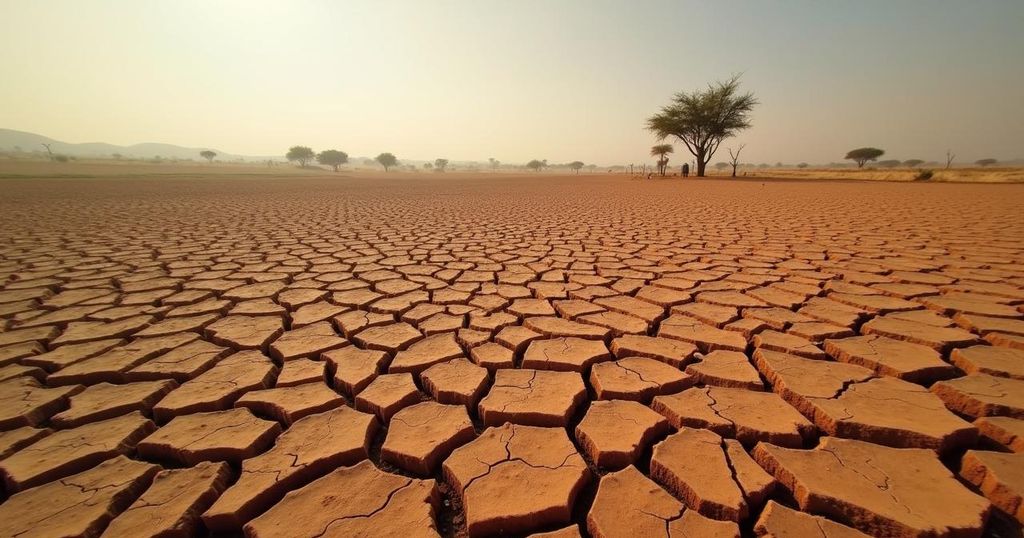Southern Africa is suffering from a historic drought affecting over 27 million people, with 21 million children malnourished. The crisis, exacerbated by climate change and El Niño, is projected to worsen until the next harvests in March or April, leading to severe food shortages and humanitarian emergencies in multiple nations.
Southern Africa is currently facing a catastrophic humanitarian crisis as it endures the worst drought in a century, significantly impacting over 27 million individuals, including 21 million malnourished children, according to the United Nations World Food Programme (WFP). Nations such as Lesotho, Malawi, Namibia, Zambia, and Zimbabwe have declared national disasters as the severe drought has decimated crops and livestock, exacerbating the situation in Angola and Mozambique as well. The impending lean season, beginning in October, is projected to worsen each month until the next harvests are anticipated in March and April of the following year. This dire situation has left many families struggling to secure even a single meal per day. Tomson Phiri, a spokesperson for the WFP, labeled this drought as “a historic drought – the worst food crisis yet – has devastated more than 27 million lives across the region.” Compounding the challenges, the El Niño weather pattern has induced below-average rainfall, and the overarching impacts of climate change have intensified these conditions significantly. As noted by Lola Castro, the WFP’s acting regional director for southern Africa, the drought has resulted in the loss of 70% of Zambia’s and 80% of Zimbabwe’s harvests. The drought has further diminished hydropower production, resulting in significant electricity shortages, while authorities in Namibia and Zimbabwe have resorted to culling wildlife to alleviate food scarcity. With sub-Saharan Africa being acutely vulnerable to climate change due to its reliance on rain-fed agriculture, millions depend on a fragile climate for their livelihoods, a situation complicated by the limited financial means of poorer nations to implement necessary climate-resilience strategies. Experts caution that the sustained irregularities in rainfall patterns due to climate change adversely affect crop yields, nutritional quality, and overall agricultural output in the region.
The current drought affecting Southern Africa is termed the worst in over a century, presenting an unprecedented humanitarian crisis with far-reaching implications for food security. Nations are critically relying on agriculture, often dependent on rainfall, which has been severely disrupted by climate variations driven by global warming. The region’s vulnerability is compounded by socio-economic factors, rendering communities highly susceptible to food shortages and malnourishment. The El Niño weather phenomenon, known to cause significant alterations in precipitation and temperature patterns, has been a primary contributor to this drought. As nations declare emergencies, the call for immediate international assistance becomes urgent to mitigate the anticipated famine and alleviate the suffering of the impacted communities.
In summary, Southern Africa is experiencing a severe humanitarian crisis characterized by the worst drought in a century, affecting millions of lives and threatening the future of its agricultural sector. Urgent action and international support are crucial to address the immediate needs of the population facing malnutrition and hunger. The ongoing climatic challenges highlight the acute vulnerability of the region and the critical importance of global cooperation in enhancing climate resilience and food security.
Original Source: www.aljazeera.com






